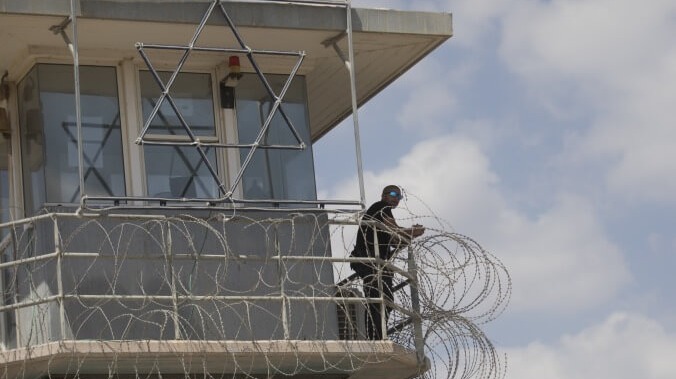New Report Documents Stories of Starvation, Sexual Violence in Israeli Prisons
"It is uncomfortable as an Israeli-Palestinian organisation to say Israel is running torture camps. But we realized that is what we are looking at," B’Tselem executive director Yuli Novak told the Guardian.
Getty Images Latest
A new report from the Jerusalem-based human rights organization B’Tselem lays bare a host of horrifying abuse allegedly occurring in Israeli prisons. The Guardian on Tuesday published interviews with former detainees, many of them Palestinians who were never charged, that corroborate the report’s claims of ruthless beatings, refusal of medical attention, sexual threats and violence, starvation, and deprivation of basic needs—including sanitary pads for women—from 55 former prisoners held in 16 prison service jails and detention centers run by the Israel Defense Forces (IDF).
“When we started the project we thought we would find sporadic evidence and extreme cases here and there, but the picture that has emerged is completely different,” Yuli Novak, the executive director of B’Tselem, told the Guardian.“We were shocked by the scale of what we heard. It is uncomfortable as an Israeli-Palestinian organisation to say Israel is running torture camps. But we realized that is what we are looking at.”
The group’s investigation arrived the same week the U.N. further reported “widespread and systemic abuse” of an estimated 9,500 Palestinians currently in detention. Testimony from prisoners in the U.N. report alleges “cage-like enclosures,” and torture that includes electrocutions, being blindfolded and bound to beds, attacks by dogs, waterboarding, sexual and gender-based violence and more. B’Tselem’s investigation, which spanned several months and spotlights “consistent and widespread” testimony of the dehumanization of Palestinian prisoners, are similarly striking.
Firas Hassan, a 50-year-old youth ministry worker from Bethlehem who was arrested under an administrative detention order in 2022, said that the conditions of the prison he was held in shifted significantly after October 7. Before, there were hot showers, edible food, time allotted for the yard, and the designation of six people to a cell. “There was respect before,” Hassan said. “But after 7 October I was sure I was going to die there. I lost all hope.”
-

-

-

-

-

-

-

-

-

-

-

-

-

-

-

-

-

-

-

-

-

-

-

-

-

-

-

-

-

-

-

-

-

-

-

-

-

-

-

-








































